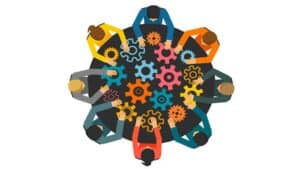From the inception, this group has continued to thrive, and now meet on a monthly basis with email communication in between meetings to keep the momentum going. They are involved in several projects and help support many researchers. The LEAR group has:
- Provided expert feedback on the methodology, implementation and dissemination of research projects.
- Evaluated project protocols
- Provided ongoing support to our predictive analytics team on the use of e-health technologies for mental health including specific apps and online tools
- Provided advice on project documents including consent forms, participant information sheets, study resources and recruitment processes.
- Co-produced a service user/carer questionnaire and some in depth interviews regarding the Trusts new ways of working in response to the Covid-19 pandemic.
- Analysis of COVID 19 service evaluation
- Critically reviewed journal papers
- Involved in several areas of research training to help upskill.
Service user and carer involvement in research and development
LEAR Group (Lived Experience Action Research)
In the Research and Development department we strive to put service users and carers at the heart of all we do, not only to act as a voice when needed, but to be a part of the full research journey, from ideas to collaboration, recruitment advice and from analysis to dissemination.
“The only people who can really understand the impact of mental illness are those who have lived with it and the people who care for them”
Our service users and carers are our valued experts, and we recognize that they are integral to driving our department and Trust forward in a truly meaningful manner. Prior to the summer of 2019, there was a gap in how we involved our service users and carers in research. This led to the introduction of the LEAR (Lived Experience Action Research) group.
When it comes to Research and Innovation, we are at the forefront. We were/are the first Mental health to have Rapid Assessment Interface Discharge Teams at acute hospitals.
LEAR group members
I’d put a “C” in front of LEAR, “C” for Communication, Just let’s be CLEAR. Communication is paramount, I’ll state this without a doubt
LEAR group member
In collaboration with colleagues from Recovery College for All the first LEAR group meeting was held and was extremely well attended; it brought together service users, carers and staff with lived experiences, all of whom had an interest in research and a drive to understand more and help our support our Trust in delivering their strategy.
The Role of LEAR (Lived Experience Action Group)
Our Lived Experience Action Group (LEAR) plays a pivotal role in integrating lived experience throughout the structure of our Research and Development Team. LEAR members are not only voices but active participants in every stage of the research journey. From generating ideas to collaborating on projects, providing recruitment advice, and assisting with data analysis to disseminating findings, their input guides and enriches our research efforts. The aim of the LEAR group is to entwine lived experience throughout the structure of the Research and Development Team, for the experts to advise, steer, challenge and encourage and to become a part of the wider research.
From the inception, this group has continued to thrive, and now meet monthly with email communication in between meetings to keep the momentum going. They are involved in several projects and have already helped support many researchers with their ideas and overtime, the LEAR group has:
- Provided expert feedback on the methodology, implementation and dissemination of research projects.
- Evaluated project protocols
- Provided ongoing support to our predictive analytics team on the use of e-health technologies for mental health including specific apps and online tools.
- Provided advice on project documents including consent forms, participant information sheets, study resources and recruitment processes.
- Co-produced a service user/carer questionnaire and some in depth interviews regarding the Trusts new ways of working in response to the Covid-19 pandemic.
- Analysis of Covid-19 service evaluation
- Critically reviewed journal papers
- Involved in serval areas of research training to help upskill.
- Over the last few months, LEAR has been instrumental in achieving significant milestones, including:
- Hope Strategies Development: Working closely with service users and carers, we have developed strategies aimed at fostering hope and resilience within our community. These strategies are designed to support individuals on their mental health journey and promote wellbeing.
- Research Strategy Crafting: LEAR has helped shape our research strategy, ensuring that it is inclusive, relevant, and reflective of the needs and priorities of those we serve. Their insights have helped us identify key research areas and methodologies that will have the greatest impact on improving mental health outcomes.
- Business Case Development: With the guidance and input of LEAR members, we have developed a robust business case that outlines our vision, goals, and plans. This document not only highlights the importance of integrating lived experience into our research but also serves as a roadmap for our future endeavours.
- The LEAR group is a ‘critical friend’ to the Research and Development Team (one who acts with positive intent) who are encouraged to ask proactive questions and provide information as seen through the eyes of those with lived experience, offering a critical examination of any production as a friend.
- Moving forward, the Research and Development Team remain committed to working hand in hand with service users, carers, and the wider research community to drive positive change in mental health research and service provision. Together, we are stronger, and together, we can make a real difference in the lives of those affected by mental health issues.





